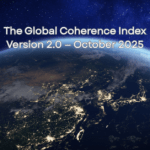The sudden imposition of martial law by South Korean President Yoon Suk Yeol and its subsequent reversal after parliamentary intervention have thrown the country into political turmoil.
This event is not only a domestic crisis but also a significant moment for the regional security dynamics of East Asia. By applying Regional Security Complex Theory (RSCT), we can better understand the interplay of domestic and regional factors shaping this crisis.
Why Martial Law Was Imposed and Revoked
Martial law was declared in South Korea due to the need to address alleged threats from pro-North Korea forces and internal instability.
It was revoked due to the National Assembly swiftly blocking the move through an emergency vote, citing constitutional violations and widespread public opposition, forcing the president of South Korea to revoke the order within hours.
Levels of Analysis: A Multilayered Perspective
- Individual Level:
President Yoon’s declaration of martial law, despite its abrupt reversal, highlights a leadership style marked by high-stakes decisions. Facing internal dissent and accusations of authoritarianism, Yoon’s gamble has damaged his credibility. The opposition’s swift mobilization, including MPs physically breaking into the National Assembly, underscores the domestic backlash against his leadership. - State Level:
South Korea’s democratic institutions demonstrated resilience, with lawmakers voting unanimously to block the martial law order. This domestic political turbulence exposes vulnerabilities in governance but also showcases the strength of South Korea’s constitutional mechanisms. However, the episode has left the state’s international reputation shaken. - International Level:
The U.S., South Korea’s primary ally, expressed “grave concern” over the situation, emphasizing the alliance’s importance in countering North Korean threats. This incident has raised questions about the reliability of South Korea’s leadership, particularly as it operates in a region fraught with security challenges. Meanwhile, North Korea, observing its southern neighbor’s instability, may see an opportunity to exploit these weaknesses.
Historical Context: The Shadow of Authoritarianism
South Korea’s modern democracy emerged from decades of authoritarian rule, and the invocation of martial law evokes painful memories for its citizens.
Historically, military control in South Korea has been associated with repression, most notably during the 1980 Gwangju Uprising. President Yoon’s actions, even if short-lived, have reignited fears of regression, highlighting the fragility of democratic norms in moments of crisis.
A Region on Edge
- Geopolitical Context:
South Korea’s strategic position on the Korean Peninsula makes its stability critical for regional security. The specter of martial law adds volatility to an already tense environment shaped by North Korea’s provocations and the regional influence of China and the United States. - Geoeconomic Factors:
Political instability in South Korea risks economic repercussions, particularly given its role as a global technology and trade hub. The uncertainty surrounding martial law could undermine investor confidence and weaken its economic standing. - Geostrategy:
North Korea’s leader, Kim Jong Un, is likely monitoring the situation closely for opportunities to exploit instability. Additionally, U.S. forces stationed in South Korea may face increased pressure to ensure regional security amidst doubts about South Korea’s leadership.
Political, Economic, Social, and Cultural Impacts
- Political:
The near-immediate backlash against Yoon’s declaration illustrates South Korea’s robust democratic resistance to authoritarian measures. However, calls for impeachment and resignations signal a deepening political crisis. - Economic:
South Korea’s economic resilience may be tested if political instability continues. The global perception of South Korea as a stable democratic state is key to its economic partnerships, particularly with allies like the U.S. - Social:
Protests against martial law highlight the strength of South Korea’s civil society. Public sentiment strongly favors democratic accountability, with fears of authoritarianism galvanizing widespread opposition. - Cultural:
The invocation of martial law taps into South Korea’s historical memory of repression. This cultural context intensifies public outrage, as citizens view the move as an affront to hard-won democratic freedoms.
Applying Regional Security Complex Theory (RSCT)
RSCT emphasizes how regional dynamics, shaped by geography and interdependence, influence security policies. South Korea’s internal crisis has immediate implications for its regional security complex, particularly its relationships with North Korea, China, and the United States.
Impact on Regional Security Dynamics & Security Complexes
- North Korea’s Strategic Calculations:
North Korea, as South Korea’s primary regional adversary, is closely observing the crisis for potential opportunities. Political instability in Seoul may embolden Kim Jong Un to intensify military provocations, test South Korea’s response capacity, or exploit the narrative of chaos to bolster domestic and international propaganda. RSCT highlights how instability in one state affects the security calculations of neighboring states, reinforcing the interdependence of threats. - United States and the Alliance System:
South Korea’s alliance with the United States is central to the security complex in East Asia. The U.S. relies on a stable South Korea to project power and deter aggression from North Korea and China. The martial law incident, which reportedly blindsided U.S. officials, raises questions about the reliability of South Korea’s leadership. RSCT underscores how security concerns within a region often draw in external powers, as seen with Washington’s immediate involvement and expressions of concern. - China’s Geopolitical Interests:
As a major regional power, China has strategic interests in maintaining stability on the Korean Peninsula. Any perception of weakness in South Korea could influence Beijing’s approach to its relationships with both Koreas, potentially leading to greater support for Pyongyang or strategic recalibrations in response to U.S. actions. - Japan and Regional Coordination:
As part of the East Asian security complex, Japan also watches South Korea’s instability with concern. Given the increasing coordination between Japan, South Korea, and the U.S. to counter North Korean threats, political turmoil in Seoul could strain trilateral cooperation and affect broader regional strategies.
RSCT and Domestic-Regional Spillover
RSCT argues that domestic issues within one state often have broader implications for the regional security environment. In South Korea’s case, the imposition of martial law temporarily undermined its democratic credibility, which could weaken its ability to lead regional initiatives or gain international support in its security policies. Additionally, the crisis risks emboldening regional adversaries and destabilizing long-standing security alliances.
This incident backs up RSCT’s argument that regional security cannot be understood in isolation.
South Korea’s domestic politics are deeply interwoven with its regional and international relationships, creating a ripple effect that extends far beyond its borders.
Conclusion: A Lesson in Democratic Resilience
The swift reversal of President Yoon’s martial law order, driven by parliamentary action and public protest, demonstrates the resilience of South Korea’s democratic institutions. However, the crisis has revealed vulnerabilities in its governance, with significant implications for regional security. Through the lens of RSCT, this event highlights the interconnectedness of domestic and regional dynamics in East Asia. Moving forward, the challenge for South Korea is to rebuild trust in its leadership while ensuring that its democratic principles remain intact amidst regional security pressures.
References
- BBC News. (2024b, diciembre 3). South Korea live: South Korea president backs down from martial law order after MPs vote to block it. https://www.bbc.com/news/live/cn38321180et
- Buzan, B., & Wæver, O. (2003). Regions and Powers: The Structure of International Security. Cambridge University Press.
- ChatGPT. (n.d.). OpenAI. https://chat.openai.com/#









No responses yet